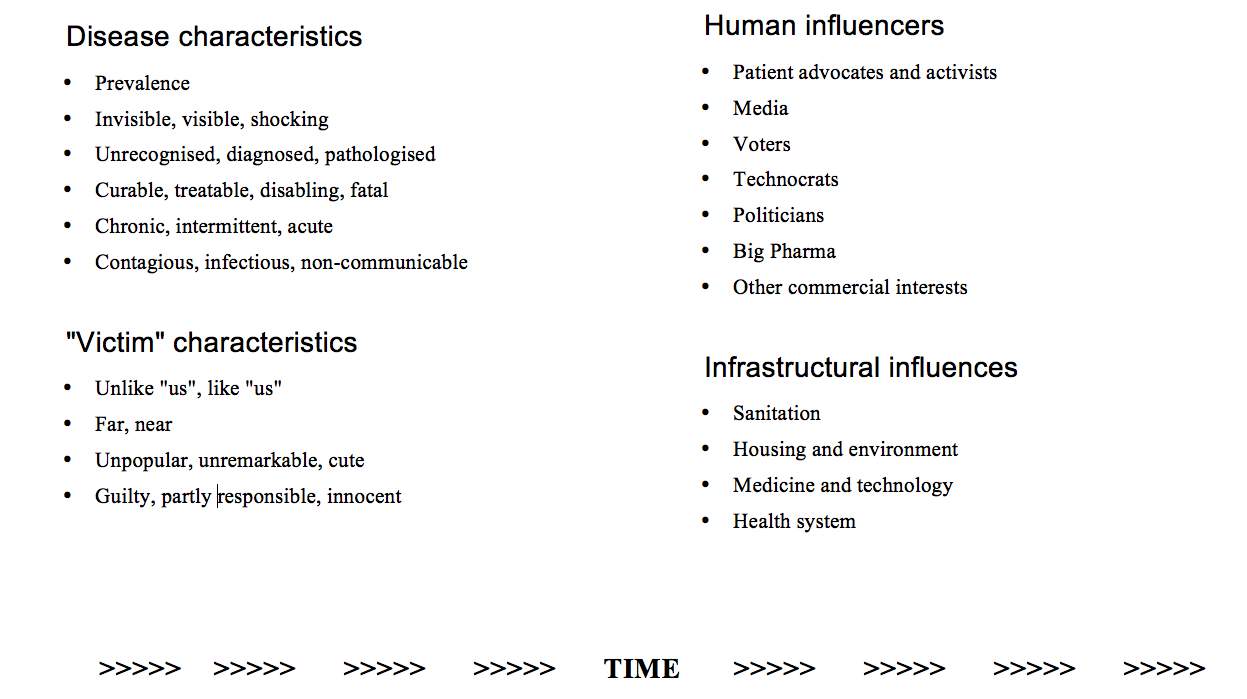
Last week, nearly every country in the world got together at the United Nations General Assembly to commit to doing something about the spread of superbugs: bacteria, viruses and other pathogens that are evolving their way around the medicines that treat them. It’s an important step, and one the UK has taken credit for, not without reason. At a bunch of side meetings ahead of the big political discussions in New York last week, speaker after speaker said that the threat of antimicrobial resistance (or AMR, for those who want to avoid the mouthful) had been neglected because it was “not urgent, like Ebola”, “not visible, like zika”, “there are no activist groups shouting about it, like HIV.” It could have been an introductory talk for the concept behind Song of Contagion.
What eventually put AMR on the global agenda was essentially the dedication and clever strategising of a single “champion” — Dame Sally Davies, the UK’s Chief Medical Officer. She looked at the evidence: we’re overusing antibiotics in both medicine and farming, they’re developing resistance fast, and there are no new ones in the pipeline because it’s more profitable to develop drugs that people have to take every day. She decided it was important, and rallied the UK Prime Minister to the cause. Then, very cleverly, Dame Sally outsourced a lot of the lobbying to an economist, Jim O’Neill. Bestower of BRICS, Goldman Sachs superhero and (briefly) UK Treasury minister, Jim is listened to by many in the corporate world (and in the all-important Chinese and Indian governments) who wouldn’t take much notice of even the most energetic health official. Lord O’Neill was the public face of a hard-working team that put together a lot of scary info-graphics based on a lot of solid evidence (and some less solid but certainly scary “blue sky” estimates) that captured the front pages of newspapers as influential as The Economist.
We didn’t actually specify “Champions” on the list of parameters that we think influence decision-making about health priorities.
But thinking more about the “human influencers”, well, they very rarely act as an undifferentiated group. Sally Davies is a technocrat, certainly. But many technocrats before her recognised the threat of AMR without getting 193 nations to sign up to work together to do something about it. She is a technocrat who is also a visionary, a strategist, and a bit of a terrier. She just doesn’t give up until she gets what she wants. So it was with the early AIDS activists. Which raises a question for the musicians engaged with Song of Contagion: what do “champions” sound like?
PROJECT UPDATE:
After a summer researching various options, we’ve come up with a shortlist of disease stories (.docx) that we think provide good illustrations of some of the key factors affecting which diseases are considered “important”. (There’s a one-page summary sheet here(.docx).) AMR is not currently on the list — somewhat ironically, because it is the issue Song of Contagion epidemiologist Elizabeth Pisani is working on right now. So that might change…
We expect to gather anyone who’s interested together to start writing lyrics the first week in November — please contact Sheelah (sheelah@btinternet.com) if you’d like to join in. Soon after that, it’s over to the musicians — we welcome all-comers with open arms. There will be a few music workshops and rehearsals over the winter, ahead of a performance in spring 2017.

